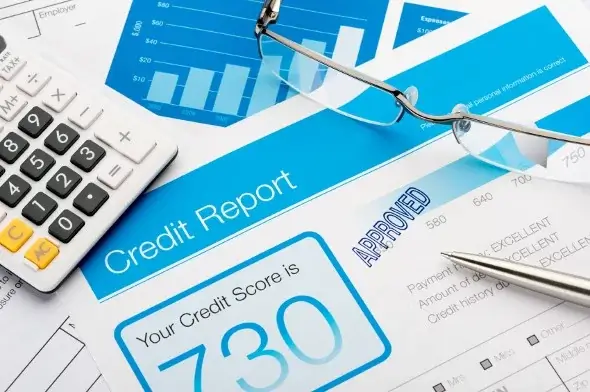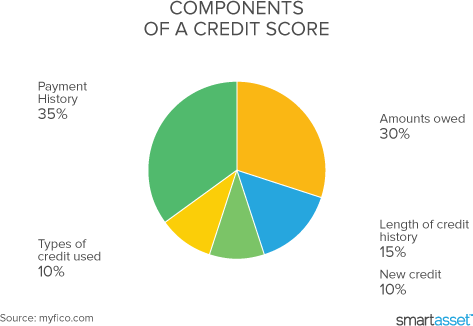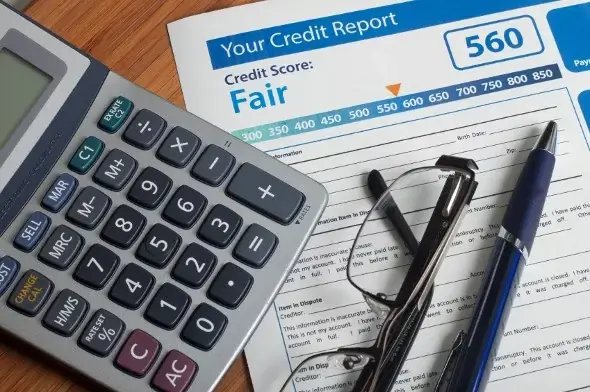
Ah, the dreaded credit score. It’s one of the biggest criteria considered by lenders in the mortgage application process — three tiny little digits that can mean the difference between yes and no, between moving into the house of your dreams and finding yet another overpriced rental. But despite its massive importance, in many ways the credit score remains mysterious. If you don’t know your number, the uncertainty can hang over you like a dark cloud. Even if you do know it, the implications can still be unclear.
Is my score good enough to get me a loan? What’s the best credit score to buy a house? What's the average credit score needed to buy a house? What’s the minimum credit score to buy a house? Does a high score guarantee I get the best deal out there? And is there a direct relationship between credit score and interest rate or is it more complicated than that? These are all common questions, but for the most part they remain unanswered. Until now.
Today, the mysteries of the credit score will be revealed.
The Basics. What is a credit score?
Your credit score isn’t just for getting a mortgage. It paints an overall financial picture. The term “credit score” most commonly refers to a FICO score, a number between 300 and 850 that represents a person’s creditworthiness — the likelihood that, if given a loan, she will be able to pay it off. A higher number corresponds to higher creditworthiness, so a person with a FICO score of 850 is almost guaranteed to pay her debts, whereas a person with a 300 is considered highly likely to miss payments.
The formula for calculating a FICO score was developed by Fair, Isaac and Company (now called, simply, FICO), and while the specifics remain a secret so that no one can game the system, FICO has made the components of the score public. The formula takes into account the following factors, in descending order of importance:
- Payment History – Have you made timely payments on your debt in the past?
- Amounts Owed – How many lines of credit do you have, and how high is the balance on each?
- Length of Credit History – How long have you been using credit?
- New Credit – Have you opened several credit accounts recently?
- Types of Credit Used – What combination of credit cards, retail accounts, installment loans and mortgages do you have?

In general, the first two factors, payment history and amounts owed, make up 35% and 30% of the total score, respectively. The length of credit history accounts for 15% and the final two factors, new credit and types of credit used, account for 10% each. But those weights can vary for each individual borrower.
All of the information necessary to calculate your credit score can be found on your credit report, a detailed history of the way you have handled debt over the past few years. If you’ve missed payments on your Visa, opened a new MasterCard, paid off an auto loan or forgotten to pay your bill at Sears, it will appear on your credit report. Before applying for a loan, it’s a good idea to get a copy of your report and to learn your credit score. This will keep you from being unpleasantly surprised and can allow you to fix any mistakes on it.
What is a good credit score to buy a house?
If only it were that simple. When trying to answer the question, What credit score is needed to buy a house? there is no hard-and-fast-rule. Here’s what we can say: if your score is good, let’s say higher than a 660, then you’ll probably qualify. Of course, that assumes you’re buying a house you can afford and applying for a mortgage that makes sense for you. Assuming that’s all true, and you’re within the realm of financial reason, a 660 should be enough to get you a loan.
Anything lower than 660 and all bets are off. That’s not to say that you definitely won’t qualify, but the situation will be decidedly murkier. In fact, the term “subprime mortgage” refers to mortgages made to borrowers with credit scores below 660 (some say below 620 or even 600). In these cases, lenders rely on other criteria — reliable source of income, solid assets — to override the low credit score.
If we had to name the absolute lowest credit score to buy a house, it would likely be somewhere around a 500 FICO score. It is very rare for borrowers with that kind of credit history to receive mortgages. So, while it may be technically possible for you to get a loan with a score of, say, 470, you would probably be better off focusing your financial energy on shoring up your credit report first, and then trying to get your loan. In fact, when using SmartAsset tools to answer the question, What credit score is needed to buy a house?, we will tell anyone who has a score below 620 to wait to get a home loan.
Looking to calculate your potential monthly mortgage payment? Check out our mortgage calculator.
What interest rate can I get with my credit score?

While a specific credit score doesn’t guarantee a certain mortgage rate, credit scores have a fairly predictable overall effect on mortgage rates. First, let’s assume that you meet the highest standards for all other criteria in your loan application. You’re putting down at least 20% of the home value, you have additional savings in case of an emergency and your income is at least three times your total payment. If all of that is true, here’s how your interest rate might affect your credit score.
- Excellent (760-850) – Your credit score will have no impact on your interest rate. You will likely be offered the lowest rate available.
- Very good (700-760) – Your credit score may have a minimal impact on your interest rate. You could be offered interest rates 0.25% higher than the lowest available.
- Good (660-699) – Your credit score may have a small impact on your interest rate. This means rates up to .5% higher than the lowest available are possible.
- Moderate (620-660) – Your credit score will affect your interest rate. Be prepared for rates up to 1.5% higher than the lowest available.
- Poor (580-620) – Your credit score is going to seriously affect your interest rates. You may be hit with rates 2-4% higher than the lowest available.
- Very Poor (500-580) – This is trouble. If you are offered a mortgage, you’ll be paying some very high rates.
Consider this a rough guide. Depending on your individual circumstances, the effects of your credit score on your interest rate may be smaller or larger than those listed above, but the general message should be clear. Having a credit score below 660 can make taking out a mortgage significantly more expensive. How much more expensive depends on the size of the loan you’re taking out and on the rest of your financial picture.
